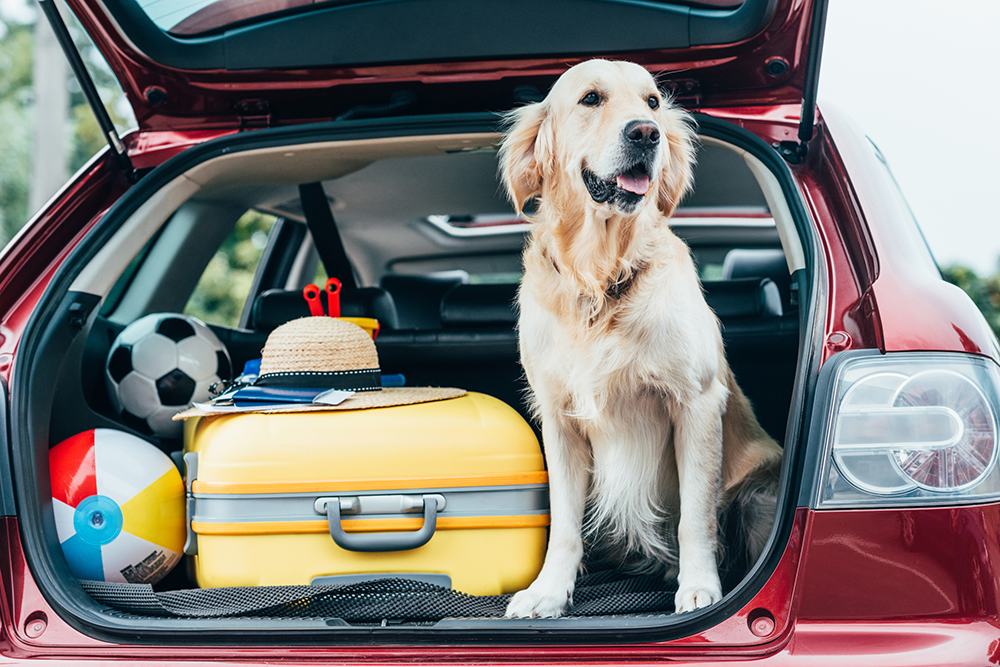
Few things in life are more enjoyable than bringing the dog along for a drive.
Of course remembering to take a few accessories can make the ride safer--and more enjoyable--for both you and your canine companion.
“Traveling with a pet by car involves more than just loading the animal in the back seat and motoring off, especially if you will be driving long distances or plan to be away for a long time,” said officials from the American Society for the Prevention of Cruelty to Animals.
One of the ASPCA’s biggest tips before hitting the road: Get your pet microchipped so they can be identified in an emergency.
ASPCA also recommends using collars on pets whenever traveling. Get tags imprinted with your name, phone number and any relevant contact information. This greatly improves the odds of being reunited with your dog if you become separated.
Here are some suggestions and safety reminders from the ASPCA for safe travels with your furry companion this summer.
- Bring comforts from home. Include along some toys and a pillow or blanket they typically sleep on. The reminder of home can provide comfort when your pet is in a new environment.
- Using a crate. If you keep them secured in a crate during the drive, make sure the crate is firmly in place and won’t slide or move during a sudden stop. Do not leave crates in direct sunlight. And make sure to leave a bowl with ample water inside the crate.
- Using restraints. Keep your furry friend safely secured in the backseat with a safety harness. These help prevent injury in case of sudden stops or accidents.
- Pack a collapsible dish and bottled water. A collapsible water bowl is convenient and compact. Serve them bottled water, as drinking water from an unfamiliar area can potentially upset your dog’s digestive system.
- Don’t forget the waste bags. Accidents happen, sometimes in your vehicle cabin. And don’t forget to be a conscientious pet owner by removing droppings from those roadside pit stops.
- Time your feedings and bring enough food. Feed your dog a light meal three to four hours before you hit the road. Pack enough servings to feed them for the duration of the trip, possibly a little more. Stores may be far between stops or not carry your pet’s preferred food.
- Bring hand sanitizer and or antibacterial wipes. Invaluable, especially after picking up your dog’s waste. Prevent contaminants from entering your vehicle by cleaning your hands, vehicle handles and other surfaces.
- Don’t leave your pet in an unattended vehicle. A few minutes in a parked car on a warm day can lead to heatstroke with potentially fatal consequences. Even mild, clear days can cause cabin temperatures to soar. Leaving a window or two cracked is not sufficient. Inside temperatures escalate quickly even if windows are rolled down. The safest solution: Never leave a pet unattended in a closed vehicle.
Copyright © 2024 by Sensible Driver. All rights reserved.



